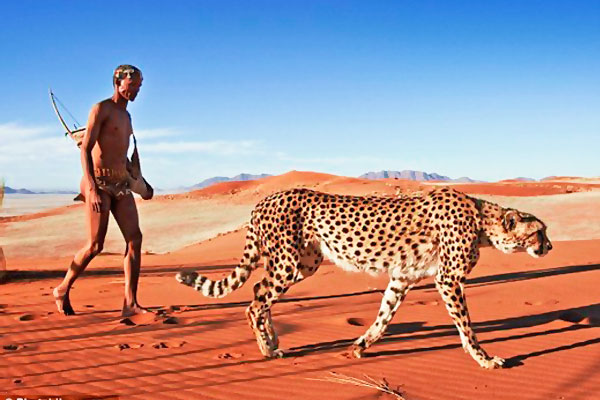Geography
The state of Madagascar occupies the entire island of Madagascar and several adjacent small islands in the Indian Ocean (Nosy-Bé, Nosy-Miciu, Nosy-Vuruna, Nosy-Wow, Sainte-Marie, Nosy-Mangabe, Nosy-Lava, Radama and Barrenok), 400 km. off the East coast of Africa. It is an area of about 587 thousand square km., second only to areas like Greenland or New Guinea. From the point of view of an inquisitive traveler, Madagascar is a continent in miniature, full of exotic life forms, many of which are found only on this island. There are extinct volcanoes, high mountains, valleys and rivers, tropical forests and semi-deserts. In Madagascar, there are no luxury hotels: this is not the place for those looking for luxurious rooms.
Vaccinations
Before visiting the country, tourists are advised to take antimalarial tablets. In addition, it is necessary to observe the basic safety precautions: ensure that the room has been sprayed for mosquitoes and avoid mosquito bites. You cannot drink the water on the island. Water used for drinking, brushing teeth or making ice should be boiled or bottled. Major diseases are schistosomiasis (you must avoid swimming in fresh water). Malaria risk exists all year throughout the country, and the greatest danger of contracting it is in coastal areas.
Customs
Citizens of Russia and the CIS countries require a visa for Madagascar, which can be issued through the Embassy in Moscow or directly on arrival in the country.
Import and export of foreign currency is not limited, but it must be declared. The export of local currency is prohibited. Allowed duty-free are the import of 500 cigarettes or 25 cigars or 500 g of tobacco, as well as one liter of any alcohol, Banned export of native gold and gemstone jewelry, products from crocodile leather, rare animal species (including products from their antlers, bones and skin) and plants, seeds and flowers (including dried). Exports of skins of animals are permitted only under license of customs or other governmental authorities. Categorically prohibited is the importation of wild and domestic animals , weapons, drugs and medicines without appropriate documentary support.
Currency
The Madagascar currency is the Malagasy Ariary. Banks are usually open from Monday to Friday from 8:00 to 15:00. Currency can be exchanged at any bank branch, at the airport, currency exchange offices and some hotels. The last option is the least favorable, as the commission is high. Changing money on the street is prohibited in the country. Automatic telling machines (ATM) where international bank cards can be used, are only found in the capital and in the major tourist centers. For travel to the province you will have to stock up on the Malagasy currency in small denominations, as the living standard of the population there is low. It is better to give tips in local currency. In restaurants they constitute about 10% of the total order value. In the restaurants and hotels of the capital the same 10% is automatically added to the account.
Security
Crime in the capital is relatively low, but there are certainly security problems there. Tourists should not carry a lot of money or leave valuables unattended. Recommended attractions should be explored with a guide or as a group. In the provinces the situation is generally calmer, but there too you should observe the custom of giving tips. Safe places to swim are the ocean lagoon and lands protected by coral reefs. In other places sharks are often found in estuaries and mangrove forests are inhabited by dangerous reptiles.Never drink natural or unverified water on the island. Water used for drinking, brushing teeth or making ice should be boiled. It is best to use bottled water.
Climate
There are tropical and equatorial monsoons and the climate can vary very considerably in different parts of the island. The average temperature in the capital +18° c on the coast is +24. +26° c. The coastal areas of the islands are frequently afflicted by devastating cyclones. The hottest areas of the island are the Northwest coast and plateau of Bemaraha, where the average temperature reaches + 34° c. The rainy season in Madagascar is from late November through March. The most favorable season visit is from May to October.
Miscellaneous
Language: the official languages are Malagasy and French. Malagasy is the westernmost language of all Malay-Polynesian and belongs to the Austronesian family. In the tourism industry English is often spoken.
Transport
The easiest and cheapest way to move around the country is with local buses. Schedules are usually announced at the airport and or at the bus terminals. Within the cities the most convenient transport is by taxi. There are two types of taxis: licensed with the emblem of Adema (they have offices) and numerous "informal taxi", unmetered but where prices are fixed, depending on distance and traffic. It is worth to agree in advance about the cost of the trip before using one of these cars. Private taxis can be a bargain.A specific types of local transport is the fast and convenient “taxi-brousse". They are a cross between buses and ordinary taxis, and the stops always have a schedule. Fares should be agreed in advance. Also, in all cities, there are rickshaws all kinds.
Cuisine
The basis of the Malagasy cuisine is rice, served with vegetables and very spicy peppers, corn, meat, fish, slices of cheese and spices. Meals tend to be very spicy. The most famous national dishes are "ravitutu" (beef fillet with mashed cassava leaves and coconut) and "rumazava" (meat stew with tomatoes and spices). European cuisine aficionados will appreciate the local goose stew. On the shore you can sample seafood (lobster, crab, oysters, and sea urchins). Fruit is plentiful year round. There is a well-developed production of wines and spirits — which is not surprising when you consider that in the past the country was a French colony for a long time.







